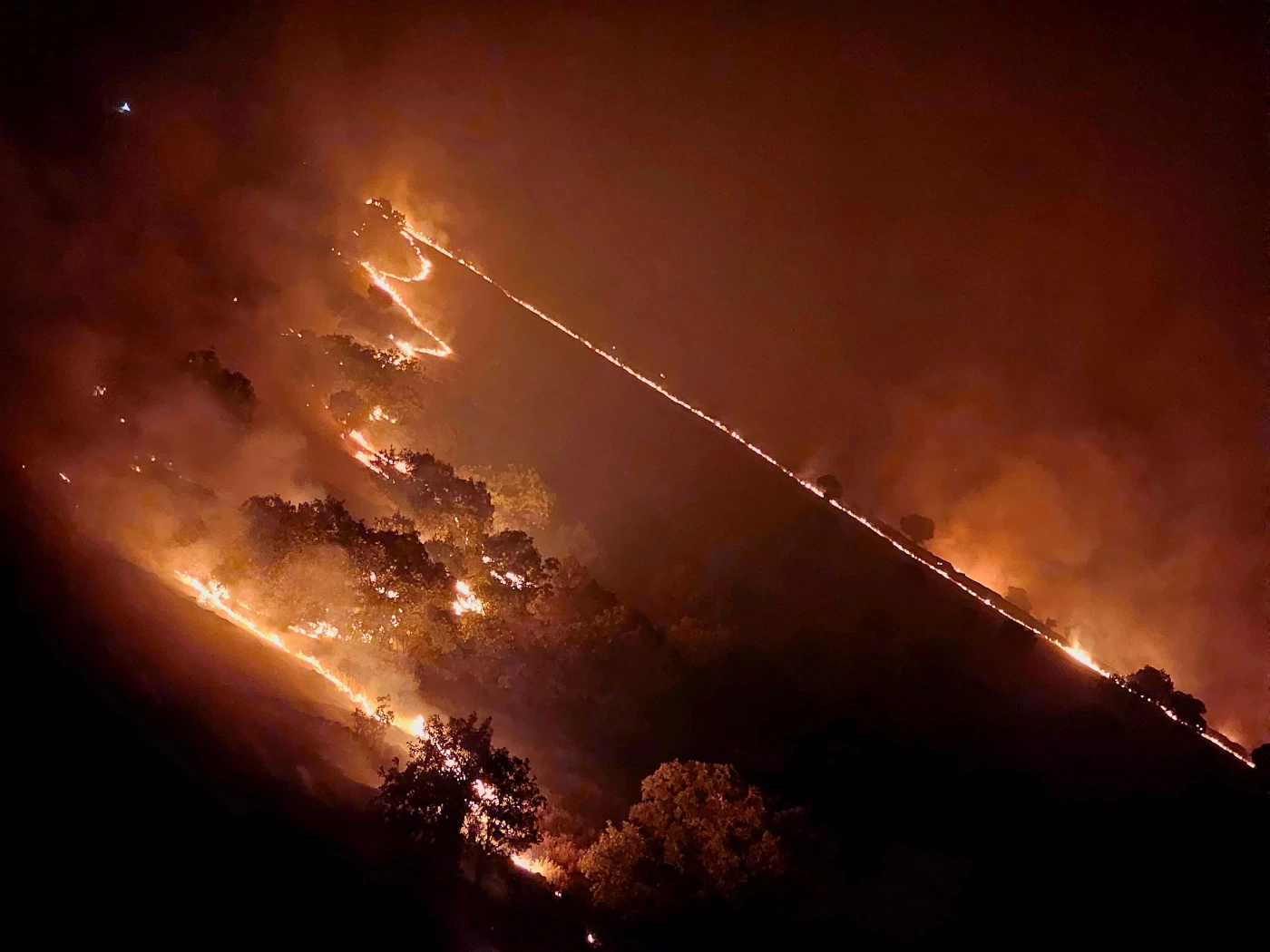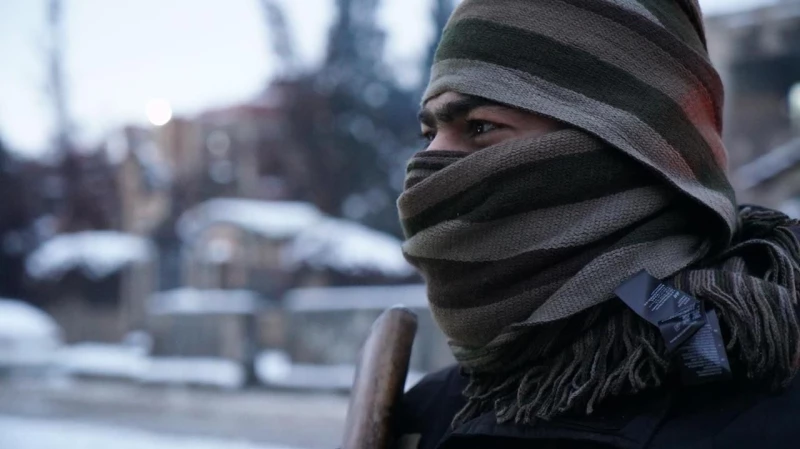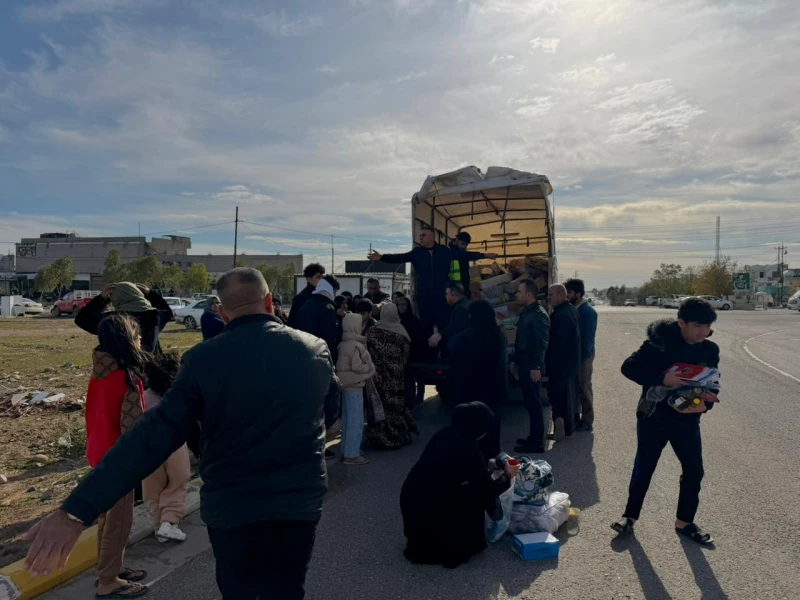HALABJA, Kurdistan Region of Iraq – Feeling an overwhelming sense of empathy and solidarity, Makwan Saeed, a digital creator and sports personality in Halabja, decided to compensate, from his own pocket, the people whose chewing gum business was laid to waste in Halabja’s recent wildfire incident that took the city’s mountain range by storm. Saeed’s gesture, however, is far from the only selfless act shown by the people of the city in the wake of the unfortunate firestorm that befell the region. Halabja’s fire, perhaps more than a display of destructive flames, was a testament to the unity shown by the city’s people in the face of disaster.
The people of Halabja have borne myriad calamities together, from the bombing of the city in 1974 by the Baath regime to the largest chemical weapons attack on a civilian population to date in 1988, which killed around 5,000 people. These tragic incidents have created a deep sense of belonging and a bond among Halabja’s people that has been passed down even to the younger generations of the city. The city’s response to the recent wildfire earlier in the week serves as a fresh example of that shared spirit of solidarity.
Halabja on Sunday afternoon witnessed a devastating inferno that started near the Naijala village on the Iran-Iraq border before quickly spreading to neighboring settlements such as Mordin. The fire spread through multiple villages, reaching Sazan before being brought under control by firefighting teams.
Aside from killing two, the fire laid waste to vast areas of vegetation, orchards, and a multitude of terebinth trees that were a main source of income to some locals. Abidain Abdulrahman, head of Halabja’s civil defense department, told The New Region that the fire had destroyed “over 5,000 dunams of vegetation, trees, and orchards, over the course of three days between August 17 to 19, covering six villages.”
Abdulrahman noted the strong support of locals who aided and assisted their teams in fighting the fire, saying that they received “overwhelming support from local people in Halabja, especially the youth, who came to the mountain with their own cars and motorcycles and assisted us.”
Mordin and its surrounding areas are nestled in a mountain range that has traditionally been used by locals to manufacture natural chewing gum from the sap of the terebinth tree. By making incisions in the tree trunks, locals create pockets from mud that catches the sap as it drips down, after which it may be processed into a gum and sold to vendors. The business is usually conducted on a rental basis, whereby the owner of the plots on the mountain range rents out his or her land to renters that extract the sap, process it, and sell it for a profit. The business is prominent enough that multiple processing factories have been opened in Halabja for the purpose.
In addition to numerous orchards, vegetation, and woodlands, the blind spread of the fire also burned many such plots after they were already rented out, causing financial damage to many who rely on the industry to make a living.
Saeed, who owns one such plot, offered the use of his land free of charge to the unlucky individuals who saw their effort and sweat be burned away in the flames. “My place is nearly a truckload, that is equivalent to around seven buckets [of gum]… that I wanted to offer to those people,” said Saeed, adding that two people had already reached out to him via a cousin. "I said with my whole chest, over my eyes, over my head, I will hand it to them,” noting that his place is on level ground, offering optimal conditions for the practice.
Saeed’s selfless gesture, however, is far from the only act of solidarity the people of Halabja displayed during the disaster. A fast-food restaurant owned by locals Zanyar Nawzad and Pshtiwan Jabar offered a dinner, free of charge, for 150 of those combating the blaze, taking 100 shawarmas and 50 pizzas all the way up the mountain to feed the civil defense teams and the volunteers who fought the fire beside them.
The owners of the restaurant told The New Region that “many regular locals had also brought food that they cooked at home,” traversing the rough and hard-to-navigate passages to get to the volunteers.
Salah Mohammed Rashid, a local whose land was laid waste to by the fire, told The New Region that “our land plots saw a lot of damage; a lot of our terebinth was burned… Vegetation has also seen immense damage.” Rashid pointed out that over 100 dunams of grazable land were burned that they used to graze their livestock in addition to his personal property.
“We made 14 to 18 million dinars [roughly 10,000-12,000 US dollars] from the terebinth trees alone,” before they were burned, said Rashid, calling on relevant authorities to compensate them in terms of services and the damage they have seen.
Awder Jalal, a volunteer who went to fight the fire, said that there were 30-40 volunteers at a sole front of the blaze. Jalal said that their orchard in Chnar was one of many in the village that burned away, noting that a full house within their orchard also succumbed to the flames, adding that some of their colleagues almost fell into the fire at times, risking their lives to prevent the spread of the inferno.
He pointed out that the civil defense teams were slow to react to the fire in Chnar at the beginning. “They sent one officer and told him to go check out what happened in Chnar. If there was a firefighting truck, the boys would have helped a lot more and prevented much more of the fire.” He added that those who were the most exhausted and contributed the most went unseen by camera crews documenting the relief efforts.
The local Zardoyi tribe, whose people span the Reshaw and Dalamar villages in Halabja, also went above and beyond. In addition to offering their solidarity and condolences in a statement to “our relatives in Chnar, Mordin and Naijala,” the tribe also voiced their readiness to offer their lands to all those whose grazing landscapes were burned, saying that “we would be honored if they accept our offer.”
The unfortunate fire that killed two people who put their lives on the line to contain it and burned thousands of kilometers of land also brought the people of the city together. Most of the volunteers that The New Region talked to had no personal incentive or much to gain in going out of their way to help their people in need, but rose to the occasion and showed that years of difficulty and hardship endured by the city has created an inalienable bond between the people of the city.
For those whose ancestors have weathered oppression, fled chemical attacks and bombings, and grappled with the devastation caused by a 7.3 magnitude earthquake in 2017, the recent fires offered yet another opportunity for the people of Halabja to showcase their unrelenting community spirit, demonstrating the the best of human selflessness in the most trying of times. In the face of yet another tragedy, they emerged from the ashes once more, unbroken and unbowed.



 Facebook
Facebook
 LinkedIn
LinkedIn
 Telegram
Telegram
 X
X


